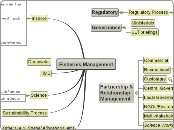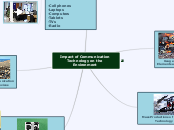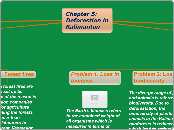作者:huang caoling 9 年以前
280
Sustaining Terrestri
Human activities significantly impact terrestrial biodiversity, particularly through how land is valued and utilized. Public lands, including national monuments and protected areas, offer crucial habitats and resources but require careful management to balance multiple uses such as mining, grazing, and recreation.
開啟
Sustaining Terrestrial Biodiversity Urban Sprawl Urban Blight decline in urban services pop. shift to suburbs Increase dependence on cars increases pollution gas comsumption highway construction Loss of agricultural land urbanized area that
spread into rural Forests Management Fire Management nutrients liberated from biomass natural fires allowed prescribed burns Ecologically sustainable forestry animal power maintaining all species
close to the natual state Selective-cutting optimum growth-shade
tolerent species trees of varying age Clear-cutting
(timber-harvesting method) increases erosion tree plantations(single species) Replanting( same age trees) Land Use Concepts Maximum Sustained Yeild Externalities Tragedy of the Commons
overuse overgrazing
deforestation
overharvesting
without agreement
or regulation common resources Federal Regulation
(managing common areas) Fish and Wildlife Sercives Endangered Species Act Environmental Mitigation Plan Environmental Impact Statement(EIS) National Environmental
Pilicy Act(NEPA) Public Lands Protected Areas scientific/ historical significance wildlife/fish pop. maintain watershed Multiple use lands Mining Timber Harvesting grazing recreation National Monuments Protected landscapes
/seascapes Natural reserces
/wilderness Habitat Managed Resources National Parks How humans value land what it can provide
(food, shelter, natural resources)









